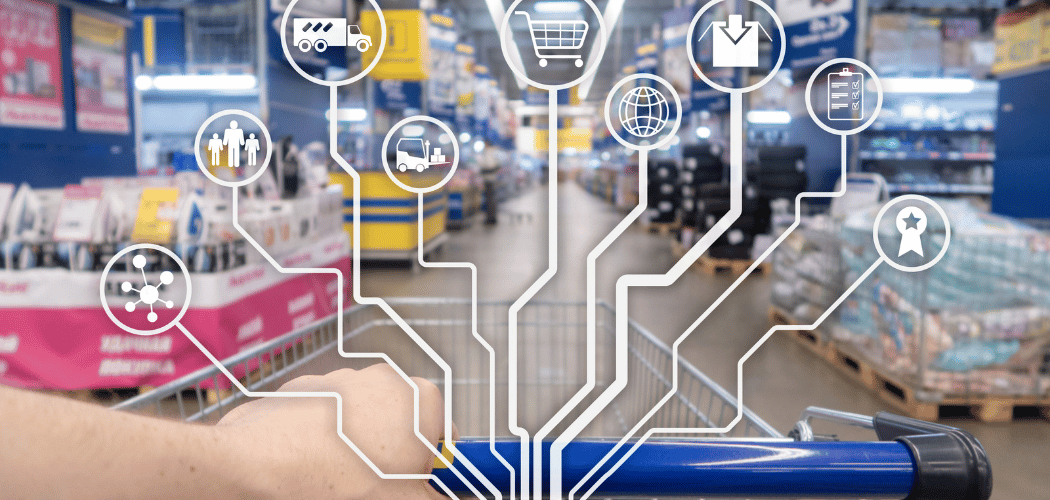 The rush to retail automation is the result of multiple converging factors: the need for many retailers to cut costs in the face of declining sales, the difficulty of maintaining margins due to price competition, the declining costs of automation tech, and the dissatisfaction of many consumers with the traditional retail experience are all driving retail toward the automated future. We’ve long argued that automation should support rather than replace human interactions, which remain essential to building brand loyalty. A new Forrester report, however, may provide a counterpoint to the argument.By Rick Ferguson
The rush to retail automation is the result of multiple converging factors: the need for many retailers to cut costs in the face of declining sales, the difficulty of maintaining margins due to price competition, the declining costs of automation tech, and the dissatisfaction of many consumers with the traditional retail experience are all driving retail toward the automated future. We’ve long argued that automation should support rather than replace human interactions, which remain essential to building brand loyalty. A new Forrester report, however, may provide a counterpoint to the argument.By Rick Ferguson
Here’s the money quote, courtesy of a Marketing Dive analysis of a recent Forrester survey on retail automation:
“As emotion becomes an increasingly critical component for forging connections with consumers, the idea that technology inherently hampers efforts to create resonance is an industry myth marketers should ignore, according to a Forrester Research report made available to Marketing Dive. In fact, technology can be a strong enabler of emotional connection when leveraged appropriately, the research group said. In Forrester's findings, live-person sales and self-service kiosks both elicited a 60 percent positive interaction, for example. The report examined digital experiences ranging from automated self-checkouts to onsite messengers and video chats.”
Well, okay, so automated kiosks can go toe-to-toe with sales associates in a consumer survey. Does that mean we can safely fire all of our retail associates and replace them with kiosks and self-serve checkouts? Marketing Dive reports Forrester throwing in this example as an anecdotal sweetener:
“The research group pointed to Hershey's Smile Sampler as a standout example here. The kiosk's camera dispenses a free piece of candy to store visitors after they stop and smile at it. The Smile Sampler, beyond potentially sweetening moods, is shown to drive foot traffic and sales, making a win for retailers and shoppers.”
OK, so the Smile Sampler elicits smiles. That’s cool – but does it strengthen the case against human interactions in retail? Let’s ask McKinsey, which released a report last year examining exactly how many currently human-occupied jobs could be automated. What does McKinsey say about retail customer service?
“…retailing also requires cognitive and social skills. Advising customers which cuts of meat or what color shoes to buy requires judgment and emotional intelligence. We calculate that 47 percent of a retail salesperson’s activities have the technical potential to be automated—far less than the 86 percent possible for the sector’s bookkeepers, accountants, and auditing clerks.”
And a recent Atlantic article points out that, despite the drive to automation and the bursting of the retail bubble, retail sales positions have actually increased over the last decade – now accounting for roughly six percent of the U.S. labor force. The Atlantic also points out plenty of evidence to contravene Forrester’s finding that consumers love kiosks as much as people.
“The fact is, even when companies manage to develop sophisticated technologies to automate sales, customers don’t seem to like them. Last year, for instance, CVS removed self-pay kiosks from some of its stores because the machines either didn’t work properly or because customers said they felt alienated by them. Grocery stores have reported similar findings, with self-checkout lanes eliminating human contact that their customers actually might have wanted. Costco, which experimented with self-service checkout for a time, abandoned that effort because managers found that people simply did a better job than the machines. And on top of all this, theft is up to five times higher in self-checkout lanes.”
So with McKinsey claiming that less than half of the functions currently enabled by human retail sales associates can even be automated at all, and with companies having experimented with automation in many cases reversing course, perhaps Forrester’s report isn’t the bellwether heralding the end of human interactions in retail. There is, of course, a field experiment currently underway: Amazon’s Amazon Go automated convenience store concept. Should consumers prove wildly enthusiastic about shopping for staples without encountering a live human being, then the rush to automation will have another data point in its favor.
Still, we’ll go out on a limb here, because why not: The future of retail won’t belong to our robot overlords. It will instead belong to our robot servants, who will enhance and support human retail interactions by making them more convenient, more personalized, and more rewarding. That’s a digital future we can believe in.
Rick Ferguson is Editor in Chief of the Wise Marketer Group.




